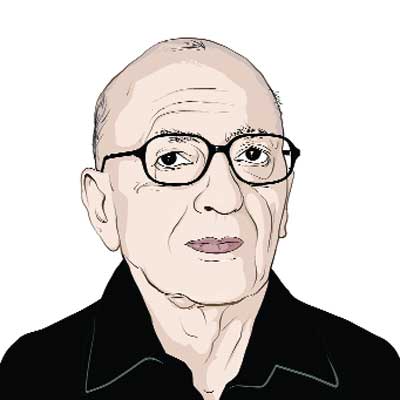Opinion The strange case of the air force in wartime
Fearing retaliation,the IAF was kept out of 62 operations. But the Chinese were in no position to retaliate and the US knew that
Since this countrys conduct of the 1962 border war with China was appalling,to say the least in the words of Jawaharlal Nehrus official biographer S. Gopal,the situation was as bad as it could be in every way; had it not been true,it would be difficult to imagine it may seem unfair to pick on any single mistake of civilian and military decision-makers from an unending series. But our failure to use air power in combat cannot be ignored because it was a blunder too massive and too consequential.
To be sure,the Indian Air Force was used to the hilt,and it did its job as best it could. It dropped in the two battlefields,North-East Frontier Agency (NEFA) and Ladakh,no less than 8,000 tonnes of supplies for the army a day though much of these were lost,especially in NEFA,because of the treacherous terrain. But the exclusion of the air force from combat was inexcusable. Some strategists have done good work on this egregious error and its ramifications,but this discussion remains incomplete even after half a century.
In all fairness,both political and military leaders are almost equally to blame for the huge bungle. The higher defence organisation,not wholly satisfactory even today,was in a far worse state then. It was virtually dysfunctional,at least partially because of the imperious ways of the highly controversial defence minister,Krishna Menon,which included playing favourites. But the three service chiefs were also remiss. Each ploughed his lonely furrow. There was hardly any coordination,leave alone joint thinking and planning.
Even so,surprisingly the IAF HQ,whether at the level of the chief of air staff or at the operational level,never even suggested to the government that it would be a good idea to use air power to interdict the Chinese and thus halt their advance. Curiously,even the army was not enthusiastic about the air force getting involved in combat. It feared that its supplies might be further jeopardised. As it happened,the idea of the air force giving close support to the ground troops,especially in the Kameng division of NEFA,was mooted. But it had to be given up because of the heavily forested mountains and hills in the area.
The political leadership was chary of aerial combat with China to such an extent that it did not want even to discuss the option. For it was almost certain that the Chinese would retaliate immediately by bombing Indian cities,while this country did not have bombers capable of reaching any Chinese city worth bombing. Some military commanders,though never consulted,shared this view. Moreover,the Congress leaders in power in West Bengal belonged to a generation that had witnessed the bombing of Calcutta by the Japanese during the Second World War and the panic and havoc this had caused. No wonder,then,that the prestigious chief minister of the state at that time,B.C. Roy,wrote to Nehru to avoid the risk of being bombed at all costs. Incidentally,the Japanese bombing of Madras (now Chennai) was even more destructive than that of Calcutta. But in 1962,no one in Tamil Nadu was losing sleep over the prospect of the Chinese bombers reaching his home.
The temptation to laugh at this kind of thinking should be resisted. Full three years later when,during the 1965 India-Pakistan War,the two countries were bombarding largely military targets in each other,the then prime minister,Lal Bahadur Shastri,was greatly worried over the danger of civilians in major cities also becoming targets. He constantly discussed this possibility with Marshal of the Air Force Arjan Singh,who was then air chief.
To cap it all,the most powerful constraint on the use of air power against the Chinese came from the United States through its ambassador,John Kenneth Galbraith. He was highly respected in any case because of his stature as an economic guru and had become highly influential because of Americas immediate promise to give India all assistance in its hour of need. He constantly told Nehru,foreign secretary M. J. Desai and others that the use of air power would needlessly escalate the war and the situation might get completely out of hand.
It also says something about the chaotic state of affairs in the government that on November 19 when Nehru sent the letter to President Kennedy asking him for two squadrons of F-104s,along with their crews,to take on the Chinese,no one thought of consulting IAF HQ. The only military man H.C. Sarin,the defence ministry joint secretary,sent for,was the director of military operations,Brigadier D.K. Palit. When the latter protested that some air marshals should be consulted,he was told that there was no time. The letter had to be dispatched at once. Palit mulled this for some time and then said: If Pakistan can operate F-104s in both its western and eastern wings,our air infrastructure should also suffice.
Even this pales,however,compared with the crowning irony that,all the while the Americans were advising us not to use air power,the CIA knew that the Chinese were in no position to launch any air operations from their bases in Tibet. No air base had a runway long enough,and the Chinese were woefully short of aviation fuel and other essential supplies. Moreover,the Chinese fighter aircraft were concentrated on their eastern coast. They had received a categorical assurance from the US that it would not unleash Taiwan against them (Henry Kissingers words) yet they wanted to take no chances.
A Pentagon study immediately after the ceasefire concluded that if India had used its air power,It would have made a significant difference to the wars outcome. (Emphasis added.)
Even at this distance of time it hurts that the Americans did not come clean and concealed from us what they knew. But then the question arises: What the hell was Indian Intelligence doing? Why didnt it get even a whiff of what the Chinese situation was?
The writer is a Delhi-based political commentator



